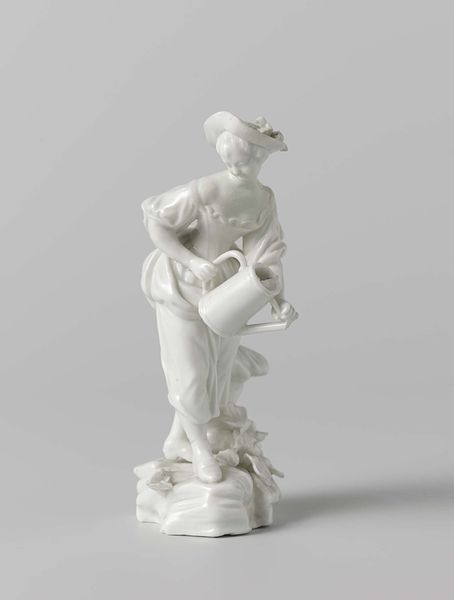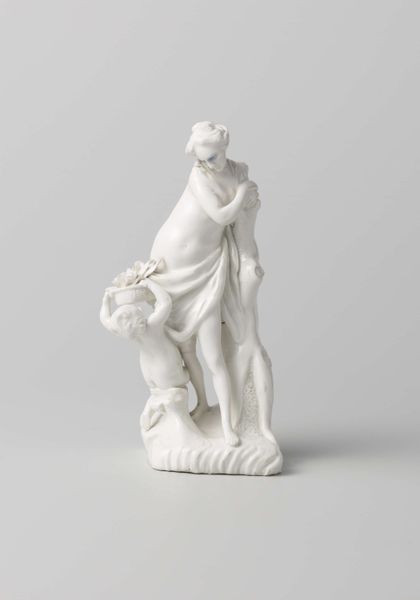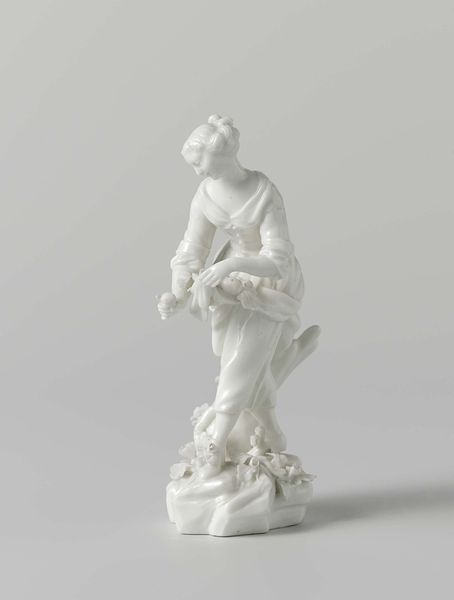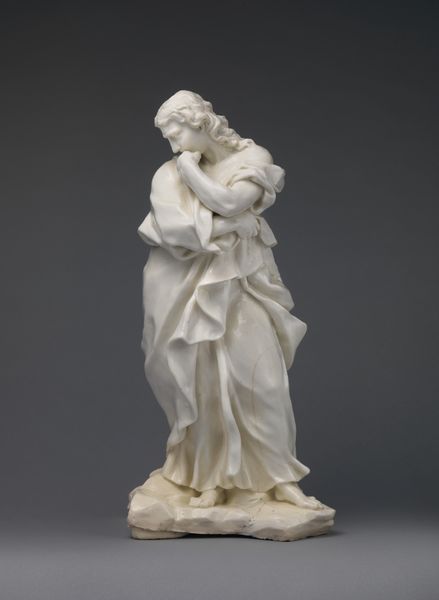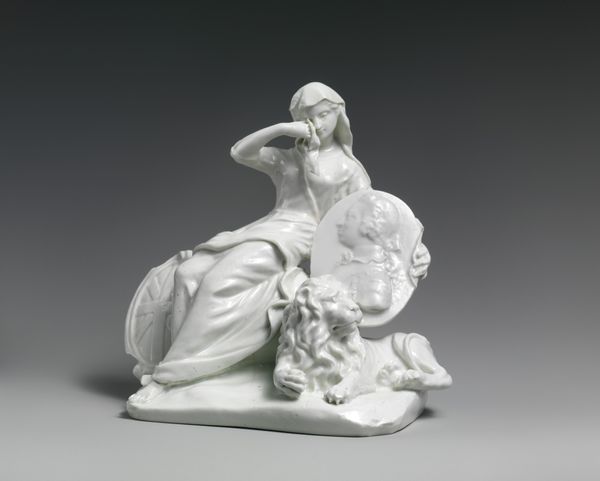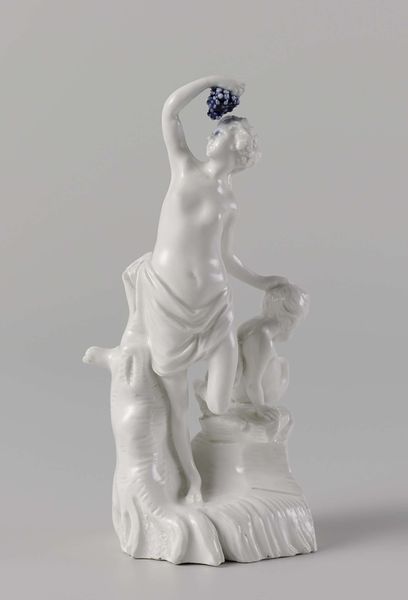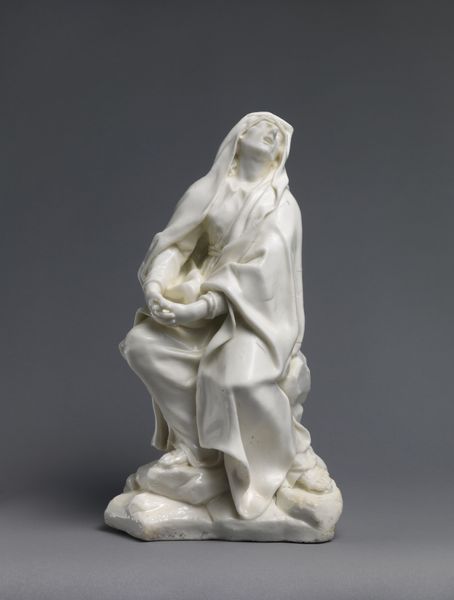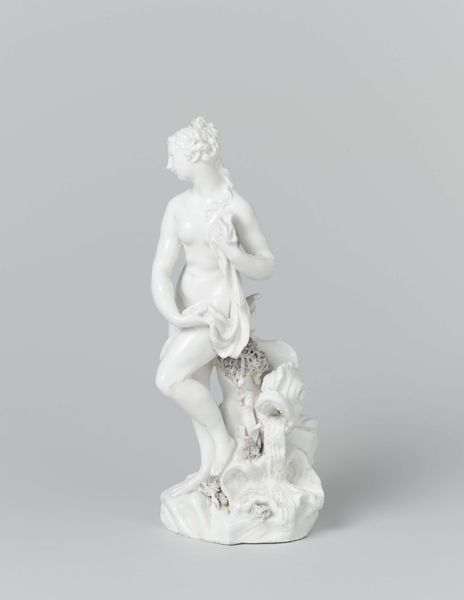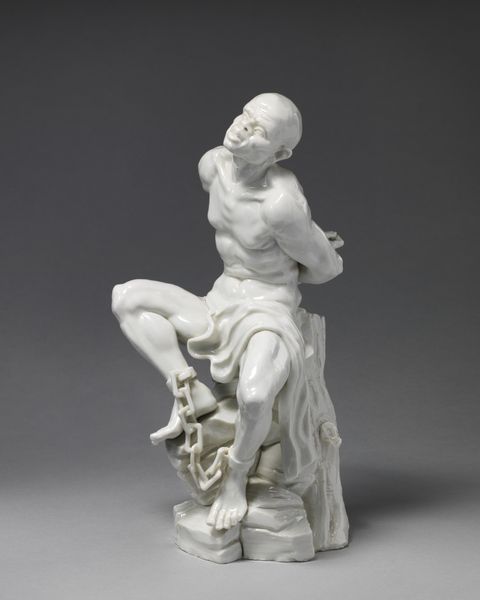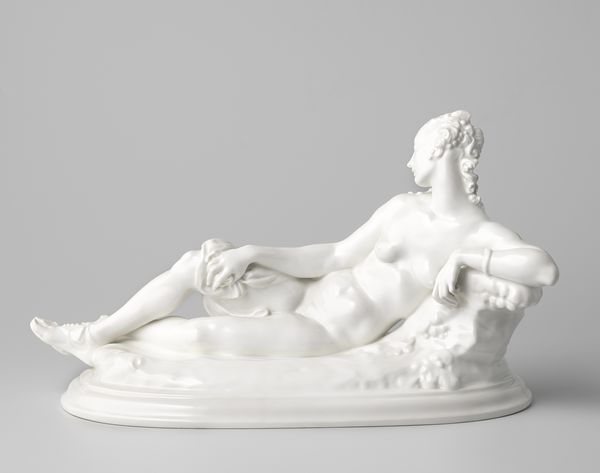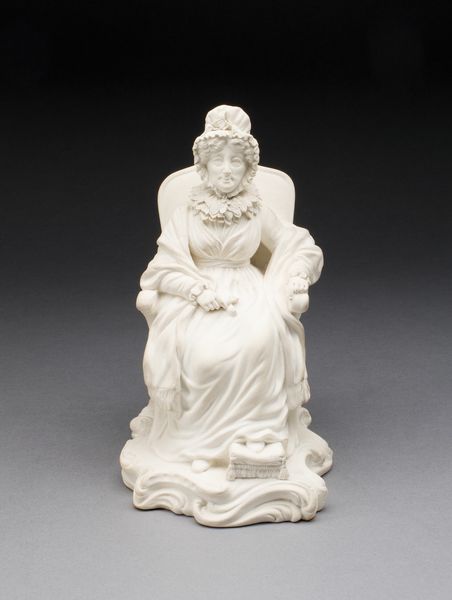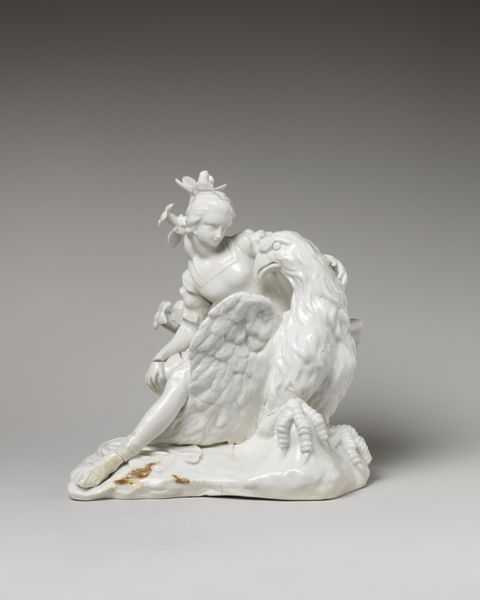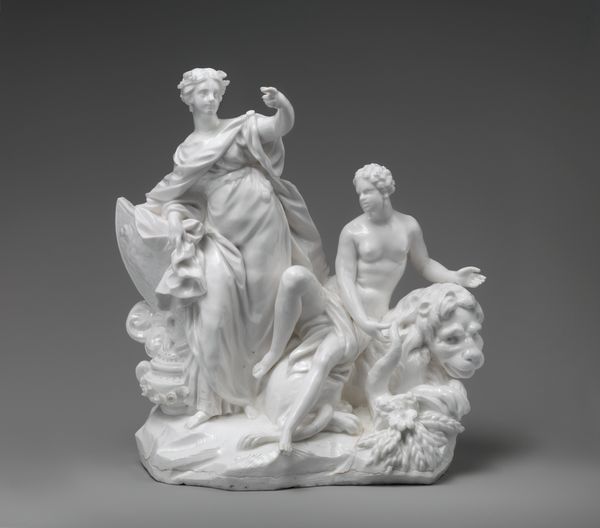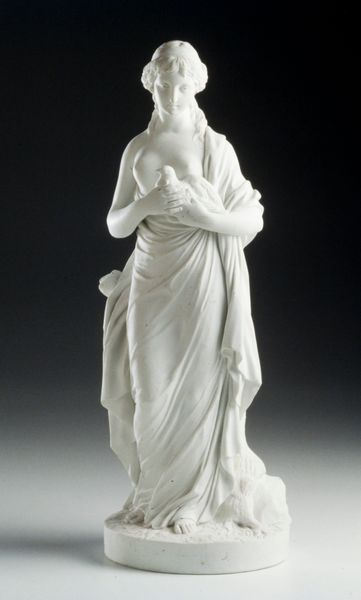
porcelain, sculpture
#
allegory
#
sculpture
#
porcelain
#
figuration
#
sculpture
#
decorative-art
#
rococo
Dimensions: height 14.0 cm, width 7.5 cm, depth 6.0 cm, width 5.5 cm, depth 6.0 cm
Copyright: Rijks Museum: Open Domain
This is a porcelain ‘Allegory of Spring’ figurine, made at the Weesper factory in the Netherlands. During the 18th century, porcelain was often used to create allegorical figures representing abstract concepts like the seasons. This piece connects with a rich tradition of representing the seasons through feminine figures. How does this figurine speak to the cultural values of its time? The woman, draped in flowing fabric, may be Flora, the Roman goddess of spring, she is depicted with a classical aesthetic, echoing ancient sculpture. A putto or cherubic figure stands beside her, carrying a basket brimming with flowers. Note the whiteness of the porcelain, suggesting purity and innocence. Figurines like this were luxury items, crafted for the wealthy elite. The Weesper factory, like others across Europe, was part of a burgeoning market for decorative arts. By understanding the social context of porcelain production, we can understand the historical status of art, its relationship to class, and the culture it represented. Researching factory records, personal letters and probate inventories would reveal more.
Comments
rijksmuseum over 2 years ago
⋮
Weesper porseleinfabriek model attributed to Christian Gottlob Berger (1730–after 1776), c. 1760–1761 Weesp, c. 1764–1768 hard-paste porcelain
Join the conversation
Join millions of artists and users on Artera today and experience the ultimate creative platform.
